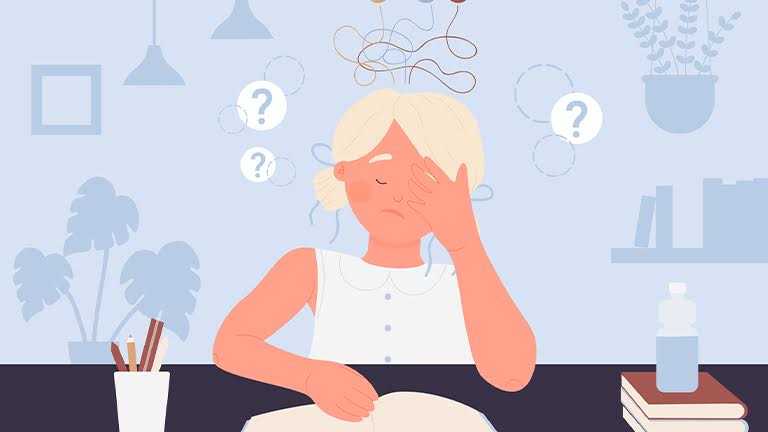
Is your child one of the many millions of young people sitting their exams this summer?
Nervous before an exam are natural – they allow our children to perform at their best. But, when anxiety levels remain elevated over an extended period, it can lead to a persistent state of fight, flight or freeze mode, impacting students’ ability to function. Signs of anxiety can range from mood swings and emotional outbursts to physical symptoms like headaches and stomach aches, as well as difficulties in concentrating, withdrawal from social interactions, and even instances of self-harm.
High levels of anxiety in students can be caused by the pressure associated with exams, which can come from teachers, parents, and even self-imposed expectations. If your teen is feeling anxious, it may be because they are concerned about letting themselves or you down, failing, judgement of peers, or gaining admission into their college or university of choice. These are all factors that can collectively impact students’ mental health, contributing to heightened levels of anxiety.
Perhaps you’re concerned your teen is struggling more than their peers with exam anxiety. Other factors are known to impact students’ mental health. For instance, experiences of bullying can significantly impact students’ emotional state and ability to cope with stress (Ye et al., 2023). Individual differences in how our teens are wired can also contribute to varying responses to exam pressure: some students may possess traits such as high sensitivity, neurodivergence, perfectionism, or a strong drive for achievement, amplifying their vulnerability to exam anxiety.
Exam stress management tips for students
If you are concerned for your child’s mental health as they prepare for and sit their exams, its is crucial to empower them with the right tools to navigate exam-related stress. Fortunately, there are various tried-and-tested strategies students can employ to support their mental health during the exam season.
- Revision techniques
- maintaining a healthy diet
- engaging in regular exercise
- practicing mindfulness exercises
- utilizing Emotional Freedom Techniques (EFT) like Tapping and Adopting cognitive reframing techniques
Can all help to alleviate anxiety symptoms effectively and swiftly, shifting teens from the fight, flight, or freeze response to a more desirable state characterized as “safe and social” or “rest and relaxation”.
Here are some more tools and techniques you can share with your teen:
The STOP process
- Notice when anxiety or negative thinking creeps in, such as ‘I can’t do this’ or’ I am going to fail’.
- Say STOP to yourself.
- Recognise you have a choice to continue with that thinking or make a change.
- Choose to do something to distract yourself – even just wiggling your toes can work or preparing a drink.
- Reframe that negative self-talk to: “I can do this; I have got this.”
- Congratulate yourself on breaking the pattern.

Breathwork
When experiencing anxiety, our breathing often becomes shallow. Engaging in focused breathing exercises can have an immediate calming effect (Fincham et al., 2023).
Here’s a simple technique your child can follow:
- Find a comfortable seated or standing position with your back straight.
- Take a deep breath in through your nose, allowing your lungs to fill completely.
- Exhale slowly and audibly through your mouth, as if releasing a sigh, while envisioning the release of stress and tension.
- Repeat this deep inhale and audible exhale several times, allowing each exhale to be a conscious release of tension and a sigh of relief.
By practicing this breathing exercise, students can regulate their breathing, increase oxygen intake, and promote a sense of calmness and relaxation. It serves as a powerful tool to help manage anxiety and restore a more balanced state of mind.
Change your language
Encourage your child to change their language from ‘I have to’/’I should’ to’ I choose to’ or ‘I get to’ – this can shift the energy, giving them a feeling of being in control. Additionally, visualizing positive outcomes, such as the exam going well and achieving desired results, can contribute to a more optimistic mindset. Reminding them to focus on the positives in life, practice gratitude, and prioritize self-care activities like exercise, engaging in fun activities, and spending time with friends are essential for maintaining overall and mental wellbeing during the exam period.
By incorporating these strategies into their routine, students can enhance their ability to manage exam stress and cultivate a healthier mental state.
The exam season is temporary and will eventually pass. However, if your teen is experiencing significant difficulties and you are concerned for their wellbeing and safety, it’s important to seek professional assistance. Mental health professionals can provide the necessary support and guidance to help students navigate these challenging times effectively.
Photo Credits:
First image: Istock pc: Flashvector
Second image: Istock pc: Prostock Studio
References
Fincham, G. W., Strauss, C., Montero-Marin, J., & Cavanagh, K. (2023). Effect of breathwork on stress and mental health: A meta-analysis of randomised-controlled trials. Scientific Reports, 13(1), 432. https://doi.org/10.1038/s41598-022-27247-y
Remskar, M., Western, J.M., Osborne, E.L., Maynard, O.M., & Ainsworth, B. (2024). Effects of combining physical activity with mindfulness on mental health and wellbeing: Systematic review of complex interventions. Mental Health and Physical Activity, 26, 100575. https://doi.org/10.1016/j.mhpa.2023.100575
Ye, Z., Wu, D., He, X., Ma, Q., Peng, J., Mao, G., Feng, L., & Tong, Y. (2023). Meta-analysis of the relationship between bullying and depressive symptoms in children and adolescents. BMC Psychiatry, 23(1), 215. https://doi.org/10.1186/s12888-023-04681-4

Alison Middleton
About the author
Alison Middleton is a Clinical Hypnotherapist specialising in stress, anxiety, and trauma, offering in-person and online consultations. Prior to founding her Amity-Health, Alison held a Hong Kong-based senior HR role within a renowned international school group. Passionate about teen mental health, her recently published book TEENs – Teens Easing Exam Nerves dives deep into evidence-backed strategies for young people, parents, and educators to navigate this challenging time.
Recently Added
Bullying is a common problem in Hong Kong, as it is in many countries and regions across the world (Johansson et al., …
As a registered nurse, it is important for me to acknowledge the promotion of breastfeeding and educate all its benefits to mothers. …
Hong Kong is an exhilarating place. Time lapse videos of the city reveal a perpetually lit up skyline with headlights speeding back …




